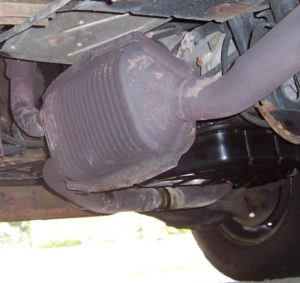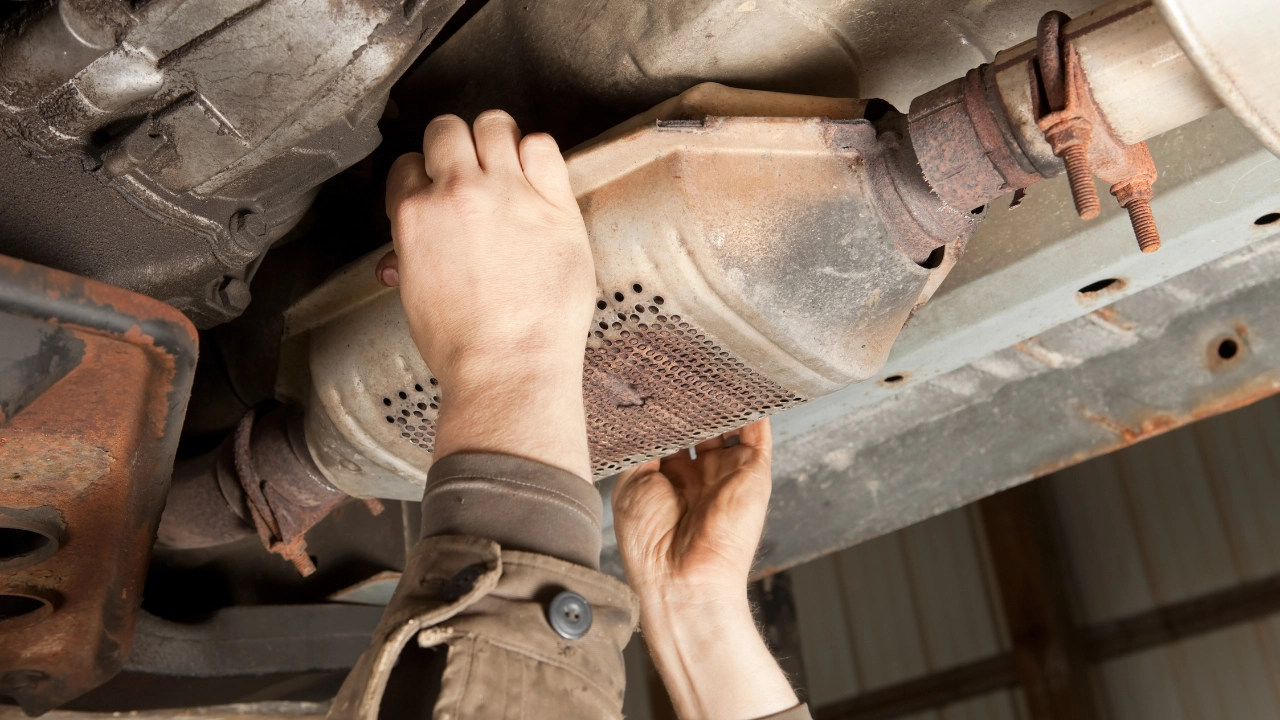Triad Sees Surge in Catalytic Converter Theft Cases
Nationwide, catalytic car converters have been stolen at astonishing rates. Thus, Triad area police officers are on the watch for catalytic car converter business transactions.
What is a catalytic converter?
The catalytic converter is located in your exhaust system, between the exhaust manifold and the muffler. To reduce pollution, a catalytic converter changes harmful gases (like carbon monoxide, hydrocarbons, and oxides of nitrogen) into less harmful emissions.
The earth metals in converters are worth a pretty penny. A used “cat” (common vernacular for catalytic converters) even off a 20-year-old vehicle, can be sold for $500.00- $2,000.00 apiece. However, the EPA has banned the sale and installation of used catalytic converters that haven’t been refurbished and certified by approved manufacturers.

Used catalytic converters must match the specific car’s original equipment and can only be installed if the vehicle is past a certain age, if a state inspection requires replacement, or if a car is brought into a repair shop without a converter. Thus, once a converter is stolen, it is not only extremely difficult to replace, but it is a costly endeavor.

Theft on the Rise Statewide
The rare Earth metals in these converters are getting more and more expensive. As a result, they are becoming a hot item in the petty theft area.
The National Insurance Crime Bureau, the prime data source for vehicle thefts reported to insurance companies, states the average monthly thefts of converters increased by over 10% from 2018 to 2020. There have been continued climbs in the number of thefts and North Carolina is ranked as one of the top five states for catalytic converters thefts.
Between Oct. 1st, 2020 and Feb. 28th, 2021, over 300 catalytic converters were reported stolen in the Greensboro area. Winston-Salem police are investigating the theft of around 111 catalytic converts reported missing or stolen as early as January 2021. In August, the Charlotte-Mecklenburg Police Department reported a 372% increase in catalytic converters being stolen from underneath cars.

Know the Law
There are several state regulations in North Carolina, found under Article 45 Section 66, that regulate the buying and selling of these nonferrous metals and catalytic converters. For instance, cash payments for the purchase of these nonferrous metals and catalytic converters over $100.00 are illegal and punishable as a Class 1 misdemeanor.
Additionally, an individual must have a license to sell the nonferrous metals found in converters. Further, a legal seller and business must comply with several requirements when making a transaction, including, but not limited to obtaining fingerprints of a buyer, obtaining the buyer’s vehicle and personal information, keeping receipts of purchase, and the weight of the metals purchased.
Violations of these regulations hold criminal punishments (punishable as both felonies and misdemeanors) and you can face jail time. While the goal is to make it impossible to sell hot catalytic converters, many legitimate salvage purchases are finding themselves running afoul of the regulations.
Dummit Fradin Can Help
At Dummit Fradin, we have seen that some law enforcement agencies across counties have increased the number of vehicle stops and have started to scrutinize business transactions occurring at auto shops and between individuals known or suspected to be involved in the sale and purchase of converters. Our firm has experience working with clients in Davidson, Guilford, and Forsyth County that have been charged with buying or selling stolen converters or have been stopped on suspicion of being involved in illegal converter transactions.
Even if you do not know a converter you have purchased or sold was stolen you could be facing serious consequences based upon regulatory violations. If you have been charged with selling or buying illegal converters, contact an experienced lawyer at Dummit Fradin today.
Written by Attorney Anastasia Tramontozzi, Criminal Defense Attorney
